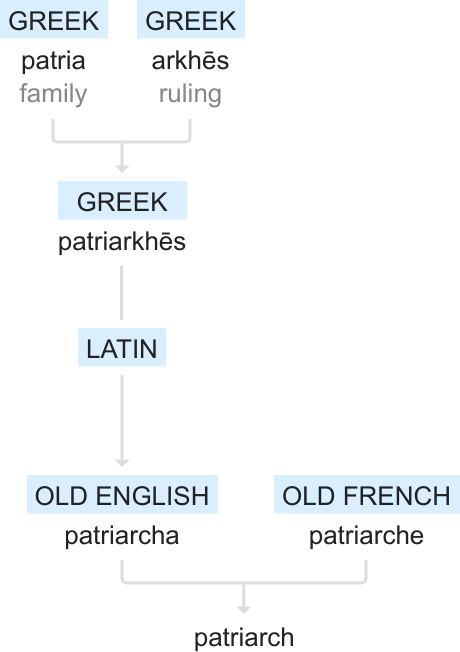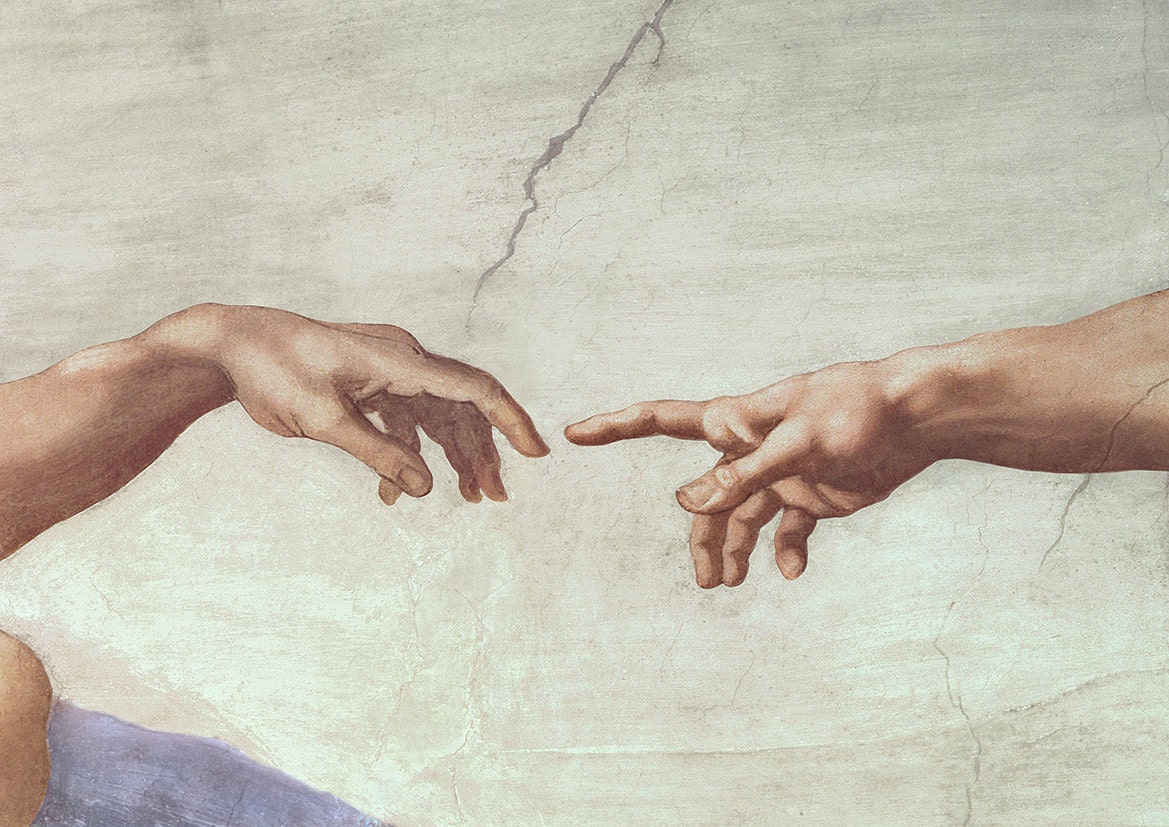-
Content count
913 -
Joined
-
Last visited
-
Days Won
6
Posts posted by Sir Darius the Clairvoyent
-
-
On 30.1.2024 at 8:02 AM, Apotheose said:Have you ever noticed that Great Mystics have purposely deprived themselves from having comfortable conditions? Like resigning wealth and embracing poverty etc... By 'privation inoculum' I mean 'induced privation' - the act of depriving oneself of certain conditions. In your perspective, which would be the purposes of such practices?
I know that I hung on a windy tree
nine long nights,
wounded with a spear, dedicated to Odin,
myself to myself,
on that tree of which no man knows from where its roots run.No bread did they give me nor a drink from a horn,
downwards I peered;
I took up the runes,
screaming I took them,
then I fell back from there-
 1
1
-
-
On 29.1.2024 at 3:28 PM, Daniel said:We were chosen and singled out for punishment... among other things. That's why traditional jewish music is often melancholy, bitter-sweet in the tonal arrangement. "Chosen" is not all champaign and roses.
But thats just even sadder in my view, the idea that you are born «wrong» or deserving of punishment.
edit: in fairness this is present in christianity as well, in the fall and the redemption arch. Original sin, no? The term in my language would translate to «inherited sin»… not a fan
-
 1
1
-
-
On 29.1.2024 at 3:50 PM, Daniel said:It's a mystery.
The first challenge is to accurately define judaism. Maybe start there.
I think you are in a better position to do that. Followers of the Torah, is that fair?
-
On 29.1.2024 at 11:21 PM, Apotheose said:
Not so familiar, thanks for sharing.I find it interesting that very distinct traditions share common myths and beliefs. Like the Great Flood, the sacrifices etc. Very intriguing.
One of the things I find intriguing about myths and religions, are how unbelivably old they are, and have been passed down for thouasands of thouasands of years. Homer recorded his epics in what, 900 bc? Yet versions of Oedipus can be found as far as way as the americas… i love old stuff
-
 1
1
-
-
20 hours ago, Apotheose said:Maybe @Nungali, @NaturaNaturans and @snowymountains would want to give their perspectives on this.
I’m sure you’d add much to the discussion.
Not to much sir, but a little.
On happiness: I have heard that we all have a baseline. Events can draw us down or lift us up, but only for a while; sooner or later we return to our «natural state.» I had a dream about this, now i wish i remember it.
On spolitude or leaving the tribe: this one is pretty universal, I think. We have shamans going to the wildernes before returning, initiation/comming of age rituals, the koryos (indo-european in origin, but found in many decended cultures), monks, Jesus in the desert… I am sure Nungalina knows of a million others.
Interrestingly, depressed people aslo find a need for solitude (nedlesset to say: no medical advice here), and i have also heard that the dreadfull, sterile enviorment in hospitals are designed that way for a reason: because a low stimuli enviorment have a healing effect.
So maybe it is a way to fine, or get in tune, with our true self (not the persona)?
If we can live in bliss all the time? My western mind says no, day is defined by night, but then again, there certainly seem to be a few gems out there who are able to achieve both higher and longer periods of bliss.
SpoilerAn American investment banker was at the pier of a small coastal Mexican village when a small boat with just one fisherman docked. Inside the small boat were several large yellowfin tuna. The American complimented the Mexican on the quality of his fish and asked how long it took to catch them.
The Mexican replied, “only a little while. The American then asked why didn’t he stay out longer and catch more fish? The Mexican said he had enough to support his family’s immediate needs. The American then asked, “but what do you do with the rest of your time?”
The Mexican fisherman said, “I sleep late, fish a little, play with my children, take siestas with my wife, Maria, stroll into the village each evening where I sip wine, and play guitar with my amigos. I have a full and busy life.” The American scoffed, “I am a Harvard MBA and could help you. You should spend more time fishing and with the proceeds, buy a bigger boat. With the proceeds from the bigger boat, you could buy several boats, eventually you would have a fleet of fishing boats. Instead of selling your catch to a middleman you would sell directly to the processor, eventually opening your own cannery. You would control the product, processing, and distribution. You would need to leave this small coastal fishing village and move to Mexico City, then LA and eventually New York City, where you will run your expanding enterprise.”
The Mexican fisherman asked, “But, how long will this all take?”
To which the American replied, “15 – 20 years.”
“But what then?” Asked the Mexican.
The American laughed and said, “That’s the best part. When the time is right you would announce an IPO and sell your company stock to the public and become very rich, you would make millions!”
“Millions – then what?”
The American said, “Then you would retire. Move to a small coastal fishing village where you would sleep late, fish a little, play with your kids, take siestas with your wife, stroll to the village in the evenings where you could sip wine and play your guitar with your amigos.”
-
 1
1
-
-
@Apoostrophe are you familiar with (the reconstructed) proto-indo-european creation myth?
from wiki:
Cosmic sacrifice
The first man Manu and his giant twin Yemo are crossing the cosmos, accompanied by a primordial cow. To create the world, Manu sacrifices his brother and, with the help of heavenly deities (the Sky-Father, the Storm-Godand the Divine Twins),[4][13] forges both the natural elements and human beings from his twin's remains.[14][5]
Manu thus becomes the first priest after initiating sacrifice as the primordial condition for the world order. His deceased brother Yemo turns into the first king as social classes emerge from his anatomy (priesthood from his head, the warrior class from his breast and arms, and the commoners from his sexual organs and legs).[14]
and then i add the old norse creation myth, just because i am a little etnocentric and i find it beautifull:
(English bottom right)
-
 1
1
-
-
1 hour ago, Nungali said:What is this 'mental immune system ' ?
A metaphor, likening our mental strength or health with that of the bodies immune system. Like how you are quicker to anger with less sleep.
Cure? Maybe not, but there Are strategies to become healthier, think more clearly.
A minatour? No, something much worse: myself haha
-
First off, i am not interrested in theology, scripture or doctrine in this thread. I want to learn from what culture the faith developed and was influenced by, the cannonization of it, what sciences like archeology, linguistics etc. can tell us.
I hope you can accept that in this thread.
-
3 hours ago, Daniel said:Can you refer me to ANY pagan texts which do not describe divine forces in conflict?
Wouldnt «any pagan text» mean literally anything that is not in the bible or quran, witch is… all the texts in the world minus the bible and quran?
-
 1
1
-
-
Wasnt what jews consider scripture… just a bunch of texts put together by pagan greeks? Septuniga?
and on the term pagan… well, i am starting to love it just because it is used as a slur by people i do not want to asscociate with.
But the real meaning of it is anyone who belives in polytheistic or etnic religions, is it not?
If so, the irony is next level. My take, we would be better of without calling people gentiles or infidels. -
15 hours ago, Apotheose said:And hence Man resigned his/her responsibility to having both of them inside their minds. The time devil tempted Jesus is, in my view, not a story, but a ‘lesson’ about the principles you referred to.
If youd like to, id love to hear more about this. I lack the knowledge of these various spiritual traditions, but much of what you say here ressonates with me
-
 1
1
-
-
The death of Baldur is prob my fav story tho.
-
5 minutes ago, Daniel said:Can you refer me to ANY pagan texts which do not describe divine forces in conflict?
Havamal
-
On the origin of the word memory, i present to you Mimir, the wisest being in all the realms: https://norse-mythology.org/gods-and-creatures/others/mimir/
If interrested you could also take a look at Odins ravens, Hugin (minne, there is no exact english word for it but remind works) and Munin (thought). https://norse-mythology.org/gods-and-creatures/others/hugin-and-munin/
-
 1
1
-
-
@Apoostrophe Thank you, my friend. For me, the main take away of the series was that 95% have these thoughts on a daily basis. In one way, not suprising, but it is «healing» to know that your human, all to human.
Memory has its function, for sure. You made your intro post about rediscovering the child mind (is that a fair description?), and I think memory plays a cruicial role in that. It is that witch hinders you in becoming an infant, grounds you in a sense.
Sadghuru i have only listened to on Joe Rogan. Likeable fellow, no doubt. He told a joke about god and science and earth, ill look it up later. You got anything in particular to reccomend from him?
Again, on becoming whole, maybe this will interrest you:
-
 1
1
-
-
(might not be as relevant as it feels, but my mind works that ways, asscociations flows all over the place)
-
Thought Virus!
That is the title of a Norwegian program I recently completed. It translates to "thought virus" and draws parallels between our mental immune system and the body's defenses. Just as our bodies can be infected, our minds can too, and similarly, it possesses a defense system that can be weakened or strengthened.
During a typical day, 95% of us experience depressive or anxious thoughts, often due to our skill in imagining various outcomes. Consider a scenario where an attractive stranger looks at you – interpretations could be positive (intrigued), neutral, or negative.
Some fear flying, yet statistically, you're twice as likely to win the lottery than crash on a flight. Flying for 6300 years straight? Statistically, you'd crash once!
Think about drinking lemon juice – you probably get a bodily reaction, feeling it almost as vividly as if you were actually drinking it. Your mind can't distinguish between imagined and real experiences.
Now, the "cure":
Vitamin A(cceptance): Simply acknowledge the thought.
Presence: Most problems reside in the past or future, not in the present.
Similar to a plane crash, it probably isn't in the future either. This brings to mind meditation – once viewed as a specific practice, now seen as being present or engaged in what you're doing, anywhere, anytime.
That odd shadow you see in bed may seem like a serial killer, but I dare say it probably isn't.
There's no monster under the bed.
The minatour
Somethings are probally left unsaid, but i did DMT ones, and in during the trip i was inside my brain and was trying to navigate it like a labyrinth. It was not fun.
-
 1
1
-
-
Some gold written by a member of another forum, qouted with permission ofc.
———————————-
QuoteAnyway, @xxxxc asked me to share some additional thoughts so, I guess I'll share the ones I expected to come up based on my initial post...
I think it's important to engage with the "entire" subject, so I disagree with the reasoning that we should follow limited lines of inquiry "because so and so does that." Limited lines of inquiry in my experience are used to generate data points for use by specialists in other Disciplines not because they're somehow "more objective" or, "more accurate."
The "Trinity Theme" that OP is exploring has been taken to represent an example of Christianity "borrowing" from various Polytheistic traditions. I don't think that anyone seriously doubts the overwhelming evidence that early Christians borrowed from Eastern traditions, not just Iranian but also Bhuddist (after all, in the New Testament Jesus identifies 9 things that are required to be a "Christian." Those "9 things" are literally just reciting Bhuddism's Eightfold Path plus, "Believe in Me" so there's obvious influence at play.)
What is overlooked I think, is the extent to which all of these traditions interacted via the Steppes prior to the Bronze-Age Collapse. I.E. in the PIE Context. Pre-Bronze Age is actually my area of study which is why I raised the topic of the Solar themes of the Nordic Bronze Age and, made the point that they contrast strongly with the Apocalyptic Themes of Early Medieval Norse myth as we understand it. Christianity became widespread at the same time that it became characterized by Apocalyptic Themes. So IMO, this represents a clear interruption of existing Norse beliefs and also, represents potential Christian Influence much earlier than we typically recognize.
Obviously this goes both ways since we know that early Christianity was subject to outside influences such as the adoption of Mithras' birthday for the dating of Christmas and, influences from Sol Invictus via Rome which introduced Triumphalism and Conquest as aspects of the Christian God.
Moving on from that, but still specific to the OP is the act of Cannabalism which is seen in Christianity via Communion. This is actually somewhat out of place as a thematic element because by this point, Greek Polytheism had been supplanted largely by Eastern Mystery Cults which don't typically display cannibalistic themes raising the question of "where exactly did they come up with this."
To me, this along with certain direct parallels such as the specific action/reaction seen in the Punishments of Loki and Prometheus, the nature of the Underworld which is simply "nothing" and doesn't relate to punishment as well as the presence of a group of female quasi-deities - the Greek Furies and the Norse Valkyries - suggests a very strong link between Norse and, Greek that's not well reflected by the current record. When you add to this the migrations we know to have occurred from the 4th Century onward - as well as the fact that Eastern Europe has not been heavily investigated in the archaeological sense - I think that Comparative Mythology will lead us in time to several conclusions:
1. The "Germanic Peoples" as a whole were both more mobile and, more "Steppe-Facing" than previously believed.
2. Trade between "Greece" and "Scandinavia" had been ongoing for longer than previously appreciated similar to how trade between the Baltic and Tyrhennian was ongoing via the Amber Road well before 700 BCE.
3. By gaining evidence including Germanic and Scandinavian peoples as intermediaries of cultural and technological exchange we'll be better able to understand a number of different historical cultures such as the White Huns or, the various Goths who act in extremely wide and strange contexts. Also however, I think we'll better understand the oral cultures of Continental Europe such as the various Gallic Tribes which migrated to Italy as well as how Roman/Etruscant Republicanism became differentiated from both Latin Traditions of Kingship as well as from various Greek Traditions of government.
All of these things rely on starting with broad, thematic observations and following where they lead rather than the alternative.-
 1
1
-
-
And one thing @Daniel, when it comes to your disdain of pagans… maybe turn that down abit before you complain about people not subscribing or even caring about judaism.
Personally i prefer pagan texts like the upanishads, Bhagavad Gita, Homer, the poetic Edda, Plato, the greek myths and even Harry Potter and LOTR to the Torah. And I am not alone, far from it.
Shame so much of it was oral, and what was not, got burned by lunatics. But a lot lives on trough popular culture, and that is not out of fear or dogma, but out of love.
-
 2
2
-
-
5 minutes ago, Nungali said:Gift ?

I thought it was a 'mania' ?
Mania is not to different from genius. I remember you told me about the roots of that very term as well.
But enough brown noseing haha
-
I say it publically, you truly has a gift with words Nungali, it is a pleasure : )
-
Regarding the male-centric (forgive me, language barrier) aspects of christianity, here are some fun (or not so fun) facts:
pope (n.)
"the Bishop of Rome as head of the Roman Catholic Church," c. 1200, from Old English papa (9c.), from Church Latin papa "bishop, pope" (in classical Latin, "tutor"), from Greek papas "patriarch, bishop," originally "father" (see papa).
papa (n.)
"father," 1680s, from French papa, from Latin papa, originally a reduplicated child's word, similar to Greek pappa (vocative) "o father," pappas "father," pappos "grandfather." The native word is daddy; according to OED the first use of papa was in courtly speech, as a continental affectation, and it was not used by common folk until late 18c.
paterfamilias (n.)
"male head of a family or household," late 15c., from Latin pater familias "master of a house, head of a family," from pater "father" (see father (n.)) + familias, old genitive of familia"family" (see family).
TLDR
I think at this point it is just so deeply ingrained at us. Still tho, i doubt many view the father as «sky-daddy»
edit: NGL, that pope derives from papa is hilarious to me
-
 1
1
-
-
27 minutes ago, Daniel said:Let's stop here for now. I'm eager to read your response to the evidence I brought that Unitarian Christianity is "a thing" and "was a thing". Also, I'm interested to read how you are establishing Marcion as a Church father when everything I'm finding is the opposite.
I agree, lets end it here. There are 2,4 billion christians, a handfull rejects the trinity, but the trinity is at the very center of the faith.
Anyway, you are right, to me it is just a book. Parts of it i see a wisdom litterature, other parts as insanity. I pick what i like as i would in a restaurant, or what choosing a movie on Netflix.
Are there jews with a very sophisticated theology. Yes, absolutley, without a doubt.
I would also like to apologies to you. I have been unfair and tiredness and anger has gotten the better of me.
That said, it boils down to one thing: a doctrine, a faith, a book, can never capture reality or the whole truth, almost by definition. I hope you understand that for everyone who does not share Your faith, who said what in what line doesnt matter to them. Like, at all.
-
 1
1
-
-




Privation Inoculum
in General Discussion
Posted
How could I forget the legend:
«Thrilled to meet the famous thinker, Alexander asked if there was any favor he might do for him. To that, Diogenes replied:
“Move a little to the right; you are blocking my sun.”
Alexander then declared, “If I were not Alexander, then I should wish to be Diogenes.” This famous anecdote is known across the world.»
https://greekreporter.com/2023/10/18/alexander-great-diogenes-philosophy/
Btw, what does the tittle mean?